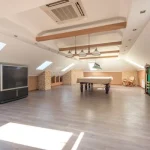When you first bring a puppy home, you’re filled with excitement and anticipation. Everything about them is adorable, from their tiny paws to their wagging tails. But then, you notice something less endearing. Your lovely pet has taken a liking to chew on your shoes, your furniture, or most worryingly, things that can harm them like electrical wires. It’s a scenario many pet owners have faced, the destructive chewing habits of young dogs. Thankfully, with appropriate methods and a little patience, you can discourage this behavior and keep both your puppy and your belongings safe.
Understanding Why Puppies Chew
First, it’s important to understand why your puppy is chewing. Puppies, much like human babies, go through a teething phase. During this time, their gums may be sore and inflamed, making the act of chewing a relief for them. Chewing also keeps a dog’s jaws strong and their teeth clean. Besides teething, puppies may chew due to boredom, anxiety, hunger, or simply because they’re exploring their environment.
In parallel : How to Create a Safe and Engaging Habitat for a Blind Rabbit?
However, it’s crucial that you don’t enable destructive behavior. While chewing can be good for their health, allowing them to chew on the wrong items can lead to harm.
Providing Appropriate Chew Things
One of the most effective ways to discourage destructive chewing is by providing your puppy with appropriate chew toys. However, it’s not enough to simply give your dog a toy and hope for the best. You’ll need to make the toy appealing to your pet.
Also to see : How to Provide Mental Stimulation for an Elderly Indoor Cat?
Try different types of chew toys to see what your puppy prefers. Some dogs might enjoy soft, plush toys, while others prefer hard, rubber ones. Additionally, you can look for toys specifically designed for teething puppies. These often have textured surfaces that soothe sore gums.
Consider introducing treat-dispensing toys to make chew toys even more appealing. Kongs, for example, can be filled with your pet’s favorite food and will provide both a tasty treat and a fun challenge. By making the chew toy more exciting than your shoes or furniture, your dog will be more likely to choose the toy over other items.
Training Your Puppy Not to Chew
While providing your puppy with suitable chew toys is a great start, it’s also essential to train them not to chew on inappropriate objects. If you catch your puppy in the act of chewing something off-limits, don’t punish them. Instead, calmly remove the object from their mouth and replace it with an appropriate chew toy.
Use commands like "leave it" or "drop it" consistently. Once your puppy drops the unacceptable item, immediately reward them with praise or a treat. This positive reinforcement will help your puppy understand that giving up the object results in something good.
Remember, puppies are just learning about the world around them and don’t inherently understand what’s off-limits. Patience and consistency are key when it comes to training.
Dealing with Separation Anxiety
In some cases, your puppy may chew as a result of separation anxiety. If your puppy only chews when you’re not home, or if they exhibit other symptoms such as excessive barking or pacing, they could be suffering from anxiety.
To reduce anxiety-induced chewing, try to make your departure and arrival as low-key as possible. Avoid making a big fuss when you leave or come home, as this can intensify your puppy’s anxiety.
Consider using a crate when you can’t supervise your puppy. Make the crate a positive space by adding comfortable bedding and favorite toys. Don’t use the crate as a punishment, but instead, make it a safe place for your puppy to relax.
Ensuring Your Puppy’s Nutritional Needs Are Met
Lastly, ensure your puppy’s nutritional needs are met. If your puppy isn’t getting enough food or isn’t eating a balanced diet, they might resort to chewing non-food items in an attempt to satisfy their hunger.
Puppies grow quickly and therefore have different nutritional requirements than adult dogs. Consult with your vet to ensure you’re feeding your puppy the correct amount and type of food for their breed, size, and age.
Remember, while discouraging destructive chewing can be a challenge, it’s an essential part of raising a well-behaved and healthy pet. Patience, understanding, and positive reinforcement will go a long way in helping your puppy grow into a well-adjusted adult dog.
Creating a Puppy-Friendly Environment
To discourage destructive chewing, it may be helpful to create a safe, puppy-friendly environment in your home. Remember, your puppy is not aware of what items are off-limits for chewing and which aren’t. It’s up to you to set the boundaries and ensure potentially harmful objects are out of reach.
Start by puppy-proofing your home. Things like shoes, remote controls, and electrical wires should be kept out of your puppy’s grasp. Regularly check the floor and low surfaces for small objects that your puppy could accidentally ingest. It’s also important to keep doors and cabinets shut, especially in rooms containing potentially hazardous items.
Invest in puppy gates to restrict your pet from certain areas of the house. This can be especially useful in rooms with many chewable items, such as your home office or the children’s playroom.
When you cannot supervise your puppy, consider using a crate or playpen. This can provide a safe space for your dog to play without getting into mischief. Fill it with their favorite chew toys and items that promote mental stimulation, such as puzzle toys. Remember, never use the crate as punishment, but as a secure and comfortable space for your puppy.
Additionally, regularly swap out your puppy’s toys to keep them interested. Provide a variety of textures and shapes to satisfy their chewing needs and avoid them getting bored.
By creating an environment that sets your puppy up for success, you can significantly reduce the occurrence of destructive chewing.
Providing Regular Exercise and Mental Stimulation
A lack of exercise and mental stimulation can lead to destructive behavior in puppies. Chewing is a way for dogs to relieve boredom and expend energy. Therefore, ensuring your puppy gets enough physical activity and mental stimulation each day can help curb destructive chewing.
Daily walks, playtime, and training sessions are all crucial for your puppy’s physical and mental health. Different breeds have different exercise needs, so research what’s suitable for your pet.
Mental stimulation is just as important as physical exercise for dogs. Training sessions, interactive toys, and even feeding times can all provide mental stimulation. Consider using dog toys like puzzle feeders or treat-dispensing toys. These not only provide a fun challenge for your dog but can also slow down their eating, which is beneficial for puppies that eat their food too quickly.
Try to incorporate training into playtime. This not only provides mental stimulation, but also helps your puppy learn what is and isn’t acceptable to chew on. Regular training sessions using positive reinforcement can also strengthen your bond with your dog, making them more likely to want to please you.
In conclusion, managing destructive chewing in puppies requires a comprehensive approach. Understand that chewing is part of a puppy’s natural behavior, and focus on guiding them towards appropriate objects rather than trying to eliminate the behavior entirely. By providing suitable chew toys, meeting your puppy’s nutritional needs, and ensuring they receive enough exercise and mental stimulation, you can effectively manage your puppy’s chewing habits. Remember, consistency and patience are the keys to success.
Every puppy is different, and what works for one might not work for another. If you’re struggling with destructive chewing despite trying these suggestions, don’t hesitate to seek professional help. A dog trainer or behaviorist can provide valuable insight into your puppy’s behavior and offer personalized advice to help curb their destructive habits.
Ultimately, the goal is to raise a well-adjusted, happy, and healthy adult dog – and every chewed shoe or furniture leg is just part of the journey. Keep your cool, stay patient, and remember that this puppy phase won’t last forever. In the end, the love and companionship your dog will bring you far outweigh these minor challenges.











